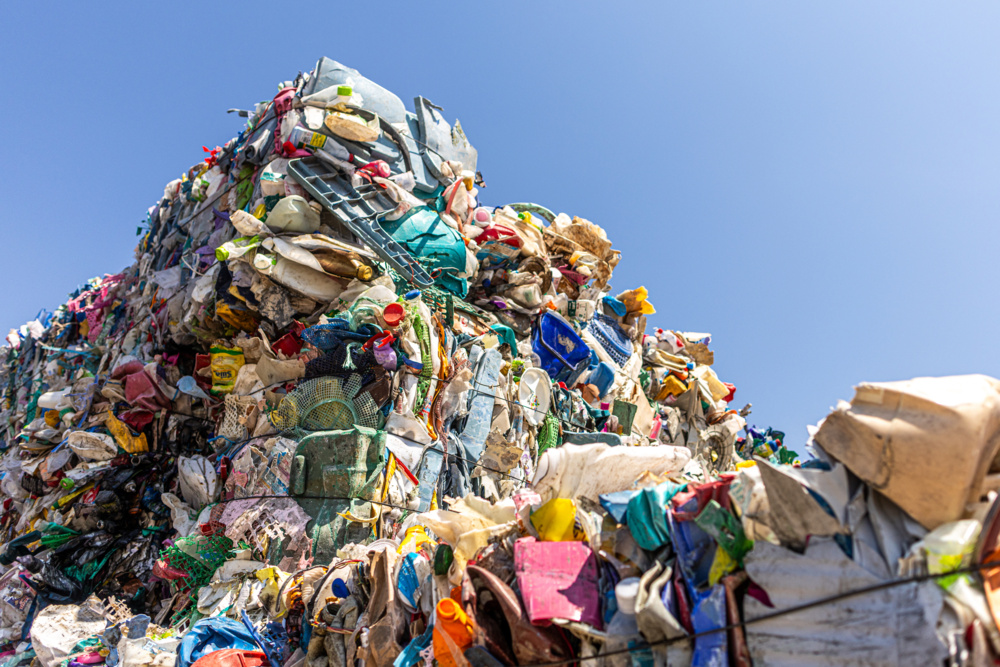
Press Release: False solutions for plastic pollution fail to stem the tide of waste
As the Global Plastics Treaty talks begin in Geneva, a new report and film from the Environmental Justice Foundation (EJF) reveal that efforts to tackle plastic pollution by focusing on waste management are entirely failing in Thailand. These ‘false solutions’ have drawn focus from the root cause: overproduction and overconsumption. This underlines the urgent need for an agreement tackling the plastics crisis at the source, says EJF.
Thailand is the world’s eighth-largest producer of plastic, and 49% of this production is exported. Plastic production in Rayong Province, where all Thailand’s fossil-based virgin plastics originate, has meant ill health, environmental destruction and collapsing fish populations, finds the report.
Toxic chemicals from plastics have been found in soil, dust, chicken and duck eggs and the blood of humans in Thailand. Plastic production also generates a significant and increasing amount of greenhouse gases (GHG). In Thailand alone, plastic production generates 27.3 million tonnes of CO2 equivalent every year - equivalent to the annual carbon emissions of 5.9 million cars.
This means that ‘false solutions’, which emphasise recycling and other waste management, miss a key element of the plastics crisis: the damage to human health, wildlife and our planet begins at the production stage, not when plastics are used and disposed of.
One of the main false solutions addressed by EJF’s new report and film is Thailand’s continued investment in facilities that burn plastic waste for energy, also known as waste-to-energy power plants, which builds a need for a steady supply of plastic waste into the energy system.
When one of these poorly regulated waste-to-energy plants was introduced to Nong Bua district, Nakhon Sawan province, Thailand, locals reported foul odours and air pollution from the incineration of waste.
Payoong Meesabai, an agriculturalist from Rayong Province, told EJF: “For me, I mourn the loss of our environment. It’s all gone. Nothing remains. All of it, wiped away.”
“In other words, our exposure starts even before birth. No one’s death certificate states ‘microplastics’ as the cause of death … they contribute to the development of diseases” Dr Rungsrit Kanjanavanit, a Cardiologist from Chiang Mai University’s Faculty of Medicine, said.
Salisa Traipipitsiriwat, Senior Campaigner and Southeast Asia Plastics Project Manager, said: “The plastics industry is profiting from this health crisis. We need bold, systemic change, not false solutions. At the upcoming Global Plastics Treaty talks and the national level, it’s time to cut off plastic pollution at the source. Reduction and reuse must come before recycling, and human health must come before petrochemical profits. Ending the single-use era would bring real, lasting benefits for Thailand and the world.”
Steve Trent, CEO and Founder of the Environmental Justice Foundation, said: “Plastics have made their way into everything, from the highest peak to the deepest sea trench, and even into our bodies. They are choking wildlife, making us sick, and accelerating the climate crisis. This is a global problem with global solutions. It’s time for a strong Global Plastics Treaty.”
At the Global Plastics Treaty talks and beyond, EJF recommends governments take strong, legally-binding positions to cut primary plastic pollution, reject false solutions like waste-to-energy, encourage reuse and repair of existing plastics and increase transparency around levels of plastic and chemical pollution.
Sujitra Vassanadamrongdee, Researcher, Professional level, Sustainable Environment Research Institute, Chulalongkorn University: “It’s like the saying, ‘you don’t cry until you see the coffin’. Since we haven’t ‘seen the coffin’, we haven’t cried as much. So, will we wait for our children to cry first? It needs to be urgently addressed.”
ENDS
Notes to editors
EJF’s report defines false solutions as approaches or policies that are presented as solutions, but fail to address the root causes of the issue, and may even generate other problems. For plastics, this includes any policy that fails to address the full life cycle of plastics, including its production, supply and consumption, such as measures that prioritise waste management over reducing plastic production. These false solutions have severe health and environmental impacts in Thailand.
In 2023, Thailand’s petrochemical industry produced approximately 8.8 million tonnes of plastics per year, all in Rayong Province. A 2024 study found that Thailand’s population had the sixth-highest estimated daily dietary intake of microplastics out of 109 countries surveyed, although this is now a global crisis.
The concerns around the waste-to-energy plants in Nong Bua district, Nakhon Sawan Province, are over the possibility of dioxin contamination. Dioxins are a class of persistent organic pollutant which can remain in the environment and human body for long periods of time. Certain types of Dioxins are carcinogenic, especially one associated with the use of Agent Orange in chemical warfare during the Vietnam War.
About EJF
Our work to secure environmental justice aims to protect our global climate, ocean, forests, wetlands, wildlife and defend the fundamental human right to a secure natural environment, recognising that all other rights are contingent on this. EJF works internationally to inform policy and drive systemic, durable reforms to protect our environment and defend human rights. We investigate and expose abuses and support environmental defenders, Indigenous peoples, communities, and independent journalists on the frontlines of environmental injustice. Our campaigns aim to secure peaceful, equitable and sustainable futures. Our investigators, researchers, filmmakers, and campaigners work with grassroots partners and environmental defenders across the globe. For more information, please contact media@ejfoundation.org.
SIGN UP FOR OUR EMAILS AND STAY UP TO DATE WITH EJF